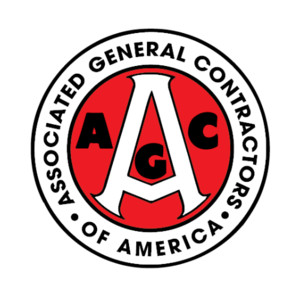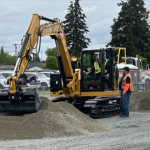Ensuring Construction Crews Take Effective Breaks: Tips for Jobsite Managers
Managing a construction jobsite involves a multitude of responsibilities, with the well-being of the crew being paramount. Ensuring that workers take their breaks and use them effectively can significantly impact productivity, safety and morale. Here are some strategies to help managers ensure that their crews take proper breaks and make the most of them by staying hydrated, eating and getting adequate rest.

The Importance of Breaks
Breaks are not just a regulatory requirement; they are essential for maintaining physical health and mental clarity. Construction work is physically demanding and without adequate breaks, workers are prone to fatigue, which can lead to mistakes, accidents and long-term health issues. Breaks allow workers to recharge, reducing the risk of injuries and enhancing overall productivity.
Scheduling and Enforcing Breaks
One of the most effective ways to ensure breaks are taken is to have a structured schedule. Clearly define break times in the daily work plan and communicate these to the crew. Use a system such as alarms or reminders to signal when breaks should start and end. It’s essential to enforce these breaks consistently. Supervisors and managers should model this behavior by taking their breaks at the designated times to set an example.
Creating a Comfortable Break Area
A dedicated break area can encourage workers to take their breaks. Ensure this area is easily accessible, clean and equipped with necessary amenities. Provide seating, shade and shelter from weather conditions. Having a comfortable and inviting space can make a significant difference in whether workers take their breaks and how they spend them.
Encouraging Hydration
Dehydration is a common issue on construction sites, especially during hot weather. To combat this, make water readily available throughout the site. Install water stations at convenient locations and ensure they are regularly stocked. Encourage workers to drink water regularly by setting reminders or incorporating hydration breaks into the schedule. Educate the crew on the importance of staying hydrated and the signs of dehydration.
Promoting Healthy Eating
Proper nutrition is crucial for maintaining energy levels and overall health. Encourage workers to bring healthy snacks and meals to the jobsite. Providing options such as fruits, nuts and protein bars in the break area can also promote better eating habits. If possible, arrange for food trucks or vendors that offer healthy meals to visit the site during lunch breaks. Educate workers on the benefits of balanced nutrition and how it can improve their performance and well-being.
Ensuring Rest and Relaxation
Breaks should be a time for workers to relax and recharge. Encourage activities that promote relaxation, such as stretching or light exercise, which can help alleviate muscle tension and reduce stress. Providing comfortable seating and a quiet environment can help workers rest more effectively. Discourage work-related discussions during breaks to allow workers to mentally detach from their tasks.
Monitoring and Feedback
Regularly check in with workers to see if they are taking their breaks and using them effectively. Use observations and feedback to identify any barriers preventing workers from taking breaks, such as tight schedules or excessive workloads. Address these issues promptly and adjust schedules or staffing levels as needed to ensure everyone has adequate time for breaks.
Setting a Positive Example
Leadership plays a crucial role in promoting a culture that values breaks. Managers and supervisors should lead by example by taking their breaks and demonstrating healthy habits. When workers see their leaders prioritizing breaks, they are more likely to follow suit. Recognize and reward teams that consistently take their breaks and promote healthy behaviors.
Ensuring that construction crews take their breaks and make the most of them is vital for their well-being and the success of the project. By implementing structured break schedules, providing comfortable break areas, encouraging hydration, promoting healthy eating and ensuring rest, managers can create a work environment that supports the health and productivity of their workers. Regular monitoring and feedback, coupled with positive leadership, will reinforce the importance of breaks and help maintain a safe, efficient and motivated workforce.








